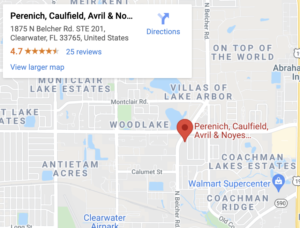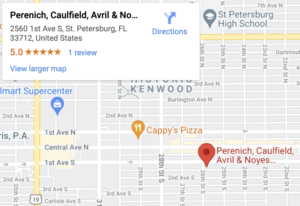
If you are injured in an accident caused by someone else’s negligence, the last thing you want to deal with is a lawyer who screws up your case. However, you have certain rights as a legal client. If these rights are violated, you may have legal recourse against your lawyer.
Florida personal injury lawyers are supposed to advocate for and protect your rights. When they fall short, you deserve to know your options for moving forward.
Table of Contents
A Personal Injury Client’s Rights in Florida

Clients have several rights – and attorneys have many duties they owe their clients – which are laid out in the Florida Rules of Professional Conduct.
Some of the most important duties personal injury attorneys owe their clients include the following:
- Provide them with proper and effective communication
- Keep them reasonably informed about the status and any changes in their case
- Guide clients regarding their claim
- Provide clear information about their fee structure
- Meet case deadlines
- Inform the client of material matters involved in their case
- Get the client’s consent before accepting a settlement or taking other major action in the case
- Provide competent legal representation, which may be achieved by researching the law or consulting another lawyer
- Provide legal representation consistent with their knowledge and experience
- Give clients the information they need to make informed decisions
If your lawyer does not follow these rules, problems may arise.
Common Problems That Give Rise To Disputes Between Personal Injury Lawyers and Their Clients
According to the American Bar Association, the most common disciplinary complaints filed against lawyers are for the following issues:
- Neglect – Neglect can take on many forms. It is basically the failure to provide the legal duty owed to the client, resulting in harm to the client. Depending on the circumstances, neglect could be failing to know how to apply the law, making errors in devising a strategy, conducting inadequate discovery or investigation, or failing to file documents in time, to name a few examples.
- Lack of communication – Florida lawyers have a duty to keep their clients informed about their cases. If a client calls, the lawyer should return the call within a reasonable time. A lawyer’s failure to stay in contact with their client may indicate other potential problems, such as not having adequate time to devote to the case, which can cause more serious issues. Additionally, lawyers must have their clients’ permission before taking certain actions, such as settling their cases. If your lawyer does not get your permission when it is required, you could have a claim against them.
- Misrepresentation/dishonesty – Lawyers can sometimes be sued if they lie or misrepresent information to their clients. They can also be sued if they steal or misappropriate money from their client.
- Scope of representation – The lawyer may have failed to provide the services they agreed to give the client and harm them in the process.
- Fee disputes/excessive fees – Clients are sometimes surprised when they receive their settlement check or a bill for services with unexpected charges. Lawyers are supposed to provide clear information about their services and fees. Additionally, Florida lawyers are required to put contingency fee arrangements in writing and explain how the fee is to be calculated.
Other problems can arise, such as a lawyer not keeping communications with their client confidential or not getting their permission before disclosing information.
Legal Options For Dealing With Attorney-Client Disputes
While disputes between you and your lawyer can arise for various reasons, your legal options will depend on the nature of your claim, the problem, and how it affects your case.
Depending on the circumstances, you may be able to take the following options:
- Work out the problem with your lawyer, such as agreeing to a lower fee
- Fire your lawyer
- Hire a new lawyer to take over your case
- File a motion with the court to correct the error
- Report the lawyer to the Florida Bar for ethical violations
- File a legal malpractice claim against the lawyer’s malpractice insurance carrier
- File a lawsuit against the lawyer
You can discuss your concerns with another personal injury lawyer during a free, no-obligation consultation.
What Is Legal Malpractice?
Legal malpractice is the failure of an attorney to perform their legal duties pursuant to the prevailing standard and the rules of professional conduct. Legal malpractice goes beyond not getting the outcome you expected. Instead, you must be able to show that the lawyer made a mistake that caused you harm and that another lawyer would have prevailed in your case.
You must be able to prove the four following legal elements to establish legal malpractice:
Duty of Care
You must show that the lawyer owed you a legal duty of care. This may be the duty to comply with the Rules of Professional Conduct or the terms of your attorney-client agreement. Lawyers owe their clients the duty to provide competent and skillful legal representation.
Breach of Duty
You must show that the lawyer did something or failed to do something that constitutes a breach of the duty they owed you. For example, your lawyer may have failed to file your claim in time, missed a court filing deadline, failed to respond to discovery requests, or did not do what you hired them to do.
Damages
It is not enough to show that your lawyer made a mistake. You must be able to prove that you suffered damages, which are usually some type of financial loss. For example, you would have to show that you would have won your personal injury case had the lawyer not made a mistake and you had a different lawyer.
Causation
You must be able to show that your damages were directly caused by the lawyer’s breach of duty.
Timeline To File a Legal Malpractice Claim in Florida
You have a strict deadline to file a claim against an attorney. Under Florida law, you must file a legal malpractice claim within two years of when the cause of action arose. That means you must file your lawsuit within two years of when you knew or should have known your lawyer acted negligently.
If you are filing a claim against your Florida personal injury lawyer, it is vital to seek new legal representation immediately. Your new legal team will need to request your file from your former attorney and will also need to begin conducting an investigation to uncover proof of legal malpractice.
Reach Out For Help From an Experienced Florida Personal Injury Attorney If Your Former Lawyer Screwed Up Your Case
If you are unsatisfied with how your lawyer is handling your personal injury claim, you have the right to choose a different attorney. If your lawyer committed legal malpractice and caused you harm, you can consult another lawyer about bringing forth a legal malpractice claim.
The personal injury lawyers at Perenich, Caulfield, Avril & Noyes Personal Injury Lawyers have over 300 years of combined legal experience. Contact us today for a free, no-obligation consultation to discuss your legal options, call us at (727) 796-8282.


